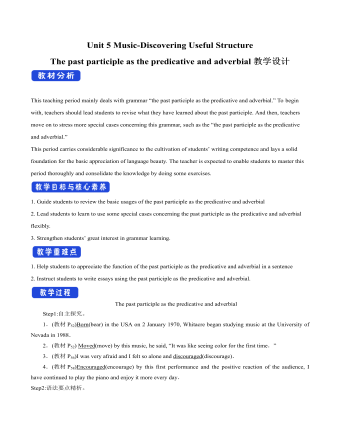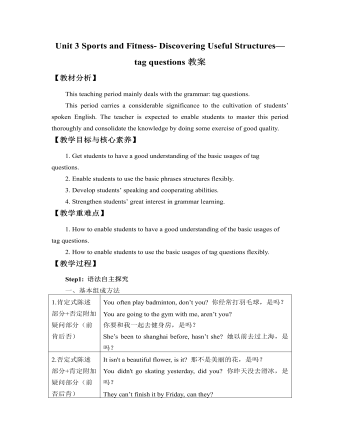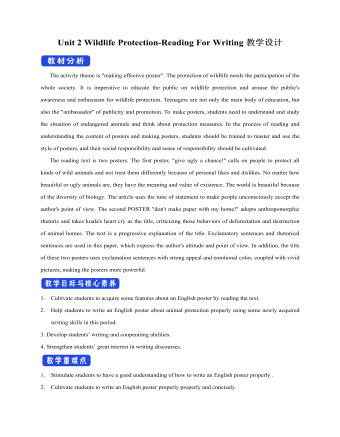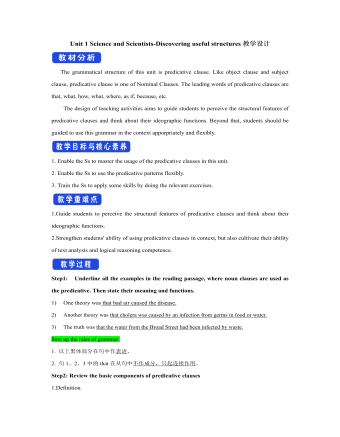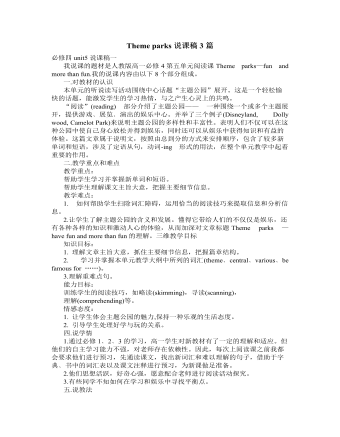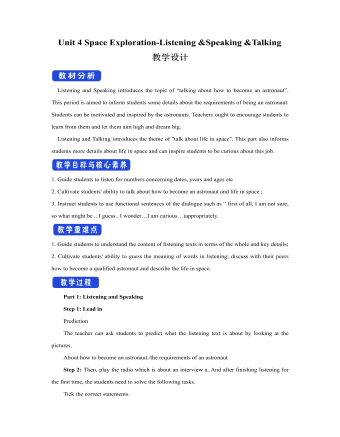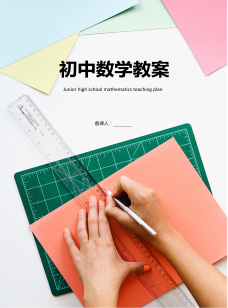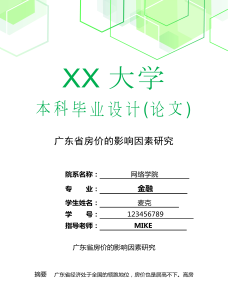新人教版高中英语必修2Unit 5 Music-Discovering Useful Structures教案一 (精美版)
Word格式/内容可修改





His words were discouraging, which made many people discouraged.他的话令人泄气,使得很多人灰心丧气。总结:英语中有很多与感觉有关的及物动词,其现在分词表示主动意义,即“令人有某种感觉的”,多用来修饰物;其过去分词表示被动意义,即“人被引起某种感觉的”,多用来指人、人的声音或表情等。常用的这类词有:exciting /excited astonishing /astonished delighting /delighted disappointing/disappointed encouraging/encouraged frightening/frightened interesting/interested moving/moved pleased/pleasingThe man standing there looks frightening, and the little boy is frightened.站在那里的那个人看起来很可怕,小男孩吓着了。The news was exciting and we were excited the whole night.这则消息令人激动,我们激动了整整一晚上。用法2:过去分词作状语过去分词作状语的类型过去分词作状语,可以表示时间、原因、条件、让步、方式/伴随和结果,相当于一个状语从句。其逻辑主语为主句的主语,且与主句主语之间构成逻辑上的被动关系。1.过去分词作时间状语过去分词作时间状语时,相当于时间状语从句。可在过去分词前加上连词“when, while, until”等,使其时间意义更明确。Looked at from a distance, the painting seems much more beautiful.→When it is looked at from a distance, the painting seems much more beautiful.当从远处看时,这幅画似乎更美了。
转载请注明出处!本文地址:
https://www.mikeppt.com/wd/2023092315415343.html- 软件:Office 2016及以上版本
- 格式:docx
- 文件大小:76.03KB
- 页数:4
- 编号:2023092315415343
- 售价:5 金币 / 会员免费
- 上传时间:2023-09-23
- 上传者:南域PPTer
- 肖像权:人物画像及字体仅供参考
-
新人教版高中英语必修2Unit 5 Music-Discovering Useful Structures教案一 (精美版)
教育教学模板 | 页数:4 -
新人教版高中英语必修1Unit 3 Sports and Fitness- Discovering Useful Structures—tag questions教案(精美版)
教育教学模板 | 页数:6 -
新人教版高中英语必修2Unit 5 Music-Discovering Useful Structures教案二(精品版)
教育教学模板 | 页数:4 -
新人教版高中英语必修2Unit 2 Wildlife Protection-Reading For Writing教案一(精美版)
教育教学模板 | 页数:5 -
新人教版高中英语选修2Unit 1 Science and Scientists-Discovering useful structures教学设计(精美版)
教育教学模板 | 页数:5 -
人教版高中英语必修4Theme parks说课稿3篇(精美版)
教育教学模板 | 页数:10 -
新人教版高中英语必修3Unit 4 Space Exploration-Listening&Speaking&Talking教学设计一 (精美版)
教育教学模板 | 页数:4
